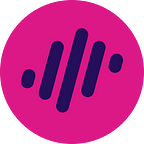Control your Health Data with Pulse Network
After the Covid-19 pandemic, data came to be one of the best tools we can use to fight an outbreak, and just like consumer data, health data is held in silos in many different companies and institutions. This means that you as the owner of said data, with the biggest stake in it, have no control over it — you are cut out of the deal leaving third parties to track, trade, and negotiate that data. Your virtual self (your health data) should belong to you to avoid creating problems of access, security, privacy, monetization, and advocacy.
Blockchain-based solutions can assist in resolving these issues.
Blockchain and Health Data
Electronic health records (EHR) are technologies that let individual practitioners and institutions keep track of a patient’s health information. These records can be exchanged via enterprise-wide data systems as well as other networking technologies and exchanges. Based on how fast the digital world is growing, patients nowadays know the value of their data and expect immediate access to their health information.
Existing centralised EHR systems suffer from a severe lack of accessibility issues that blockchain tech can solve by providing a new viewpoint on data security and system efficiency.
PulseMed presents a blockchain-based system that helps the patient’s data be managed and secured into a single record held by the patient known as Pulse Pocket (Personal) while the practitioners have the Pulse Records (EMR) and Pulse Records for Dentists decentralised applications. Healthcare institutions and practitioners can use these dApps to store patients’ data and execute functions in a decentralised system using blockchain smart contracts. Patients and healthcare providers can communicate and transact using these platforms and thanks to the smart contract technology, they are assured of security and privacy features.
Given that patient health information keeps changing based on the ailment they have, the desired alterations can be verified and transmitted to the entire distributed network. There is also an embedded wallet feature that contains a centrally administered, confidential data system, allowing healthcare institutions to swiftly retrieve and safeguard records. By utilising blockchain technology, users can access identical data simultaneously, leading to improved efficiency, enhanced credibility, and reduced obstacles.
Pulse’s technology ensures secure data storage through user-specific access settings — that is, only the users with specific access can retrieve the data. This is a next-gen health-record system that utilises both blockchain technology and artificial intelligence to come up with a new protocol that is quick and secure to use, allowing greater openness and ownership of sensitive data to be recorded and secured, while also promoting growth within the healthcare sector.
Why Health Data Control Should Matter to You
You might not know the power your data holds so let us break it down for you — to start with, big data is the most powerful asset we have in solving big problems in the modern world. With ample supply of data, AI systems can learn and relearn. With big data, we can track and trace infection. With abundant data supply, we can manage healthcare talent and medical supply chains. With big data, we can deduce what the nation wants and plan for our economic futures. So, yes your data is a powerful asset that you should not give up the reins of control so easily.
You need to retain control of your health data as it represents a subset of your digital identity, the virtual you that is created by your data contrail across the internet. Blockchain technology helps us realise the value our personal data holds in our lives by enabling us to use our data proactively and improve our well-being.
These are some of the tradeoffs you make as an individual if you don’t control your health data:
- Inability to use your data for long-term healthcare planning and decision-making
- Lack of benefits or rewards for data usage, while bearing the risk and responsibility of data misuse or loss
- Inability to monetize or manage healthcare data for personal, family, or heir’s benefit
- Ongoing privacy risks for yourself and your family
- Inability to contribute to health policy development or advocate for necessary changes, as well as the inability to collectively bargain with other patients or powers of attorney for cost reduction and service improvement.
Conclusion
Pulse is trying to educate its users on the need to retain control over their health data by creating dApps that balance data and privacy. The project team understands that although providing patients with access to their records and creating interoperable digital data systems can help alleviate pressure and improve patient engagement, there are additional factors to consider when it comes to safeguarding patients’ sovereignty. Improving accessibility is only one aspect of the larger picture.
By owning our medical data, we could solve the problems of access, security, privacy, monetization, and advocacy. The key, as Pulse reveals, is to take advantage of existing technologies — Blockchain and AI — to manage our data according to our own terms of use.
